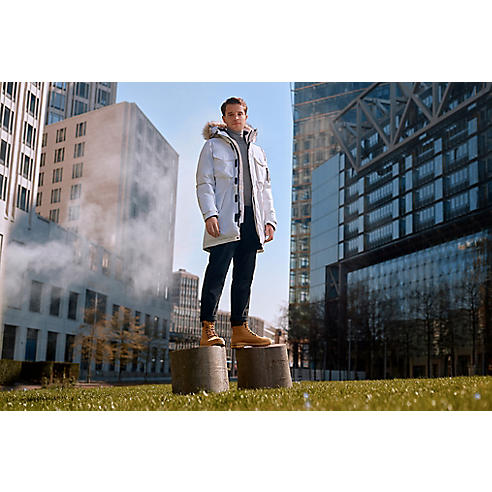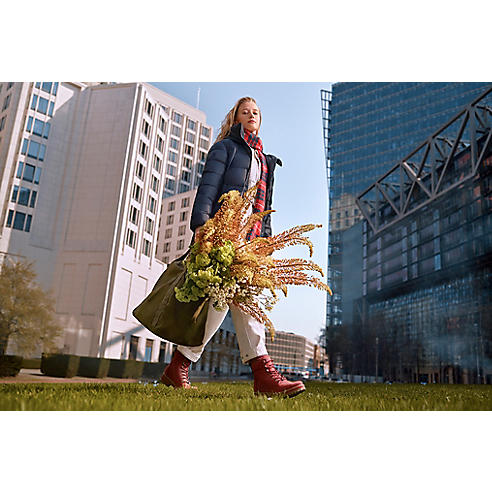MyPlaygreen puts kids in touch with nature in a new way
My Playgreen
In 1960 a third of the world’s population lived in urban areas. Today, that figure has exceeded 50% and is predicted to rise to around 66% by the year 2050. As cities vary in size and density, it is possible that a more in-depth calculation would point to this figure being even higher. This means that both adults and children in urban areas will have decreasing opportunities for contact with nature and this will negatively impact their well-being.
The availability of more green spaces within cities improves air quality, bringing obvious health benefits for residents. Various studies demonstrate that trees and plants help to combat pollution by absorbing carbon dioxide, supplying oxygen and filtering toxic gases and particulates, as well as lowering temperatures in summer, improving the visual aspect of urban areas and helping to maintain biodiversity. Green spaces have a positive effect on both the physical and mental well-being of the inhabitants of cities and are effective in combatting depression and loneliness. It has also been shown that there are negative effects on the health of people, especially children, who rarely have access to nature.
Since 2001 Timberland has planted over 9 million trees throughout the world and is aiming to reach a figure of 10 million by 2020. There is one particular scheme which targets large European cities where urban greenery could really make a difference: MyPlaygreen. Designed by Timberland in partnership with the King Baudouin Foundation, a Belgian institution which works to improve social cohesion in Europe, the aims of MyPlaygreen are driven by the evidence of the difference that green space can make to people living in urban areas. The aim of the initiative is to encourage children and young people to make use of the green spaces in their city. As well as the physical and psychological health benefits, MyPlaygreen also gives them the confidence to explore other parts of their environment.
The project focusses on recovering or adding value to city parks, community gardens, small farms, vegetable gardens and green spaces which are within easy reach of people who live in cities. It has allowed thousands of youngsters to come closer to nature within their own cities. MyPlaygreen also supports small-scale local organisations by providing essential funds for activities aimed mostly at families with children and local schools, which also involve local residents. The budget allocated to each organisation is a maximum of €5,000 and is assigned by a panel of experts.
Five European cities have been or will be involved in MyPlaygreen, as Europe is home to 14% of the world’s urban population. In 2016 London, one of the most densely populated cities in Europe, was the first city selected to take part. With funding of £80,000, fourteen innovative projects were organised throughout the city, mostly in central areas either side of the Thames. These projects concentrate on small areas covering a few tens of square metres to larger plots and have enabled over 5,000 children to get closer to nature. The winning projects include the small Spitalfields City Farm in Tower Hamlets, East London, one of the city’s more densely populated areas. Set up by volunteers forty years ago, it is still run by volunteers who take care of animals and plants and organise projects involving local children. Another example is the Clitterhouse Farm Project, a Victorian farm fallen into disrepair. Local residents started work in 2013 to convert the farm into a large green area for the community of Cricklewood, in North West London. The farm has been transformed into a hub that supports small businesses in the local community and provides a meeting place for residents. It now covers a large green area and is very welcoming. The Timberland and King Baudouin Foundation initiative has also ventured into more fundamental areas. Funding has been provided to projects such as the creation and care of vegetable and other gardens at shelters for young homeless people aged 16 to 25 who come from problem families or challenging backgrounds. One example is Green Spark at the Single Homeless Project.
In 2017 it was Italy’s turn and funds were set aside for as many as 16 projects in Milan. The funds were allocated to the regeneration of 31,000 square metres of green space which would benefit 25,000 children. Widely differing projects throughout the Milan area received support from Timberland and the Foundation. These included Un circo in giardino at the Piccola Scuola di Circo Società Sportiva Dilettantistica Arl, the Green Living Lab San Siro organised by the Associazione Culturale Temporiuso and the green spaces designed for children of prisoners and their parents, developed by the not-for-profit organisation Sos Il Telefono Azzurro.
In 2018, Timberland MyPlaygreen travelled to Berlin where 13 projects were supported to improve kids' access to nature. In 2019-2020, the grant was launched in Paris, where additional 17 projects were sponsored.
In 2021, MyPlaygreen arrives in Madrid and Timberland has allocated a total of €80,000 for 16 grants worth up to €5,000 each. It is the perfect opportunity for local non-profit organizations and foundations to submit their projects focusing on the creation, maintenance or improvement of green spaces in urban areas. Proposals can be uploaded on the King Baudouin Foundation website in Spanish or English until September 31st. A jury of independent experts will assess the applications according to various criteria such as the objective of the project, location, accessibility and sustainability, environmental benefit or whether the results of the project are measurable.




